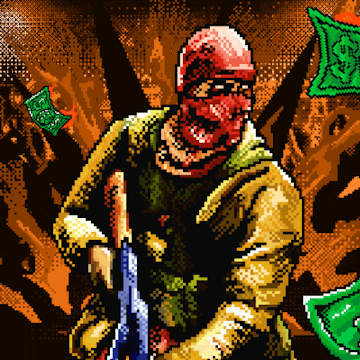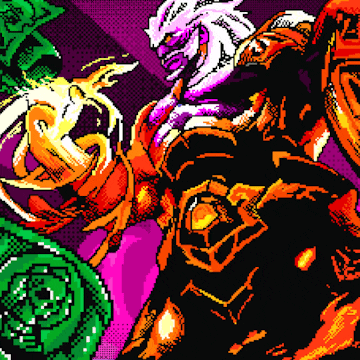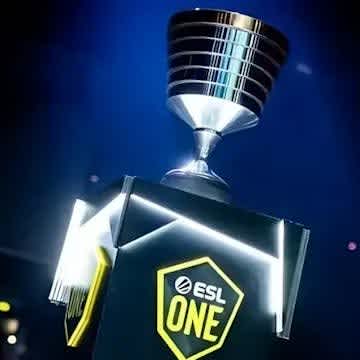The StarLadder DMCA saga may be a glimpse of the future
Hosting a Major isn’t easy. Late starts, production issues and accusations of scrimping on talent have plagued two of the last three Valve-sanctioned events, but in terms of social media rage, a rather bigger problem came up as week one of the Berlin-based event drew to a close. Several CS:GO streamers received DMCA notices for streaming the Major from GOTV, sent by StarLadder themselves, leading to mass panic, accusations of illegality and all the rest. While the community reaction is understandable, this may end up being a look at the future as esports fans are forced to accept that things cannot remain as they are now if the scene is to keep growing.
Streaming struggles
In short, the flashpoint of the issue surrounded popular streamer fl0m, who was streaming the Major through GOTV when he received a DMCA strike on his channel, which he has confirmed to be lifted since in an interview with YouTube personality WarOwl.
While he no longer has the blot on his copybook, the fallout from the strike led to StarLadder saying he could still stream, but only if he met a number of obligations regarding sponsorship and advertising that had the potential to jeopardise his own earnings down the line.
At this point in time, we are still in the dark about Valve’s position on the ownership of the GOTV rights for the Berlin Major, presumably as the office is still recovering from the TI9 celebrations in Shanghai and is yet to remember the ‘other esports’ exists. Many in the scene have appealed for the company to reaffirm their past stance taken on the subject and confirm StarLadder are acting in contravention to Valve’s wishes, but so far no word has come from Gabe-on-high. No such thing has happened just yet.
Until we hear otherwise, most streamers are assuming StarLadder’s word is law. That would actually be fairly logical and in line with similar deals in other sports and esports. The comparison between the traditional physical disciplines and our own world doesn’t work entirely, as there is no ‘owner of football’ in the same way Valve own Dota or CS:GO, but the way broadcasting rights work should be roughly the same across the spectrum as the mechanics surrounding them are no different if you want to play Fortnite or football, Dota or darts – or any other alliterative pairing you might pick.
What makes the StarLadder case different to all of those is, of course, GOTV, and the fact that streamers are not technically using the tournament feed, but the live in-game ‘demo’ unfolding before their very eyes. Although it is a unique situation, there is an odd logic to the idea the TO would have rights to the ‘official’ stream, but GOTV would also allow content creators to tell their own story, directed live and distinct from the official stream.
In short, when a company get the rights to an event, it is a chance for them to sell sponsorship on that back of that – something which StarLadder have already done. The massive bidding wars that surround the Premier League every time those rights go up for sale exist because broadcasters know that sponsors want to advertise around the most competitive, best club division in the world, and will pay a premium to do so. While CS:GO hasn’t reached those levels yet, there is still value in the exclusive rights to big events.
This is also why the likes of Sky and other TV companies work so hard to protect that investment as their entire business revolves around being able to tell Mercedes, Dell or any other blue chip sponsor that this is the only place a fan can watch their team. If, as was the case for some time, it is fairly simple for the average supporter to get the action for free, then this affects Sky’s bottom line, and in turn the value of the product itself, potentially damaging the game at the top level long-term.
StarLadder are obviously in a more awkward position due to the fact that Valve have traditionally said anyone can broadcast the GOTV feed, but we aren’t in 2013 anymore. We have had two $30m tournaments already this year – in Fortnite and Dota –, and players are earning tens of thousand of dollars a month to play in massive arenas. Esports has evolved, and broadcasting rights are one of the areas that will almost inevitably change due to their potential value to the tournament organisers.
Read more: Which football teams are entering esports and why?
The issues StarLadder and FACEIT share – among which are production and lack of talent – are a by-product of the financial realities of hosting a Major. Those with a decent understanding of the scene will already know this, but you do not make profit hosting the tournament, meaning companies like StarLadder and others have to find other ways to monetise their broadcast – either down the road or right now –, to make up the shortfall of running Valve’s flagship event.
The traditional wisdom is that you make the money back in the reputational benefit that comes with hosting the big show, but there doesn’t appear to be a lot of love flowing right now for StarLadder. It’s also not like they are ELEAGUE or BLAST, trying to prove they can run CS events at all, with the firm founded in 2001 and already known as supporters of the CIS scene. For them, the Major is a boon, but also a big dent on their profit.
As a result, if things don’t change on a larger scale, we are likely to see these problems come up more and more often as tournament organizers work harder to protect their own bottom line. As with so many issues in the scene, the genesis of this entire problem lies with Valve’s ambiguity, and the problem probably won’t be resolved in the eyes of the community until they leave their clouds and deign to address the unwashed masses. Still, the game has changed. No matter how this round plays out, don’t be surprised if the ‘free-to-air’ nature of the Major stream changes further in the near future.





